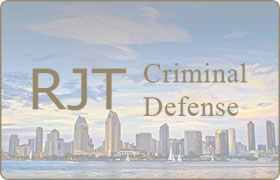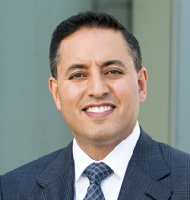San Diego Juvenile Law Lawyer, California
Sponsored Law Firm
-
 x
x

Click For More Info:
-
RJT Criminal Defense
2820 CAMINO DEL RIO SOUTH STE 110 SAN DIEGO,CA» view mapDUI Defense, Drug Crimes, Homicide San Diego Criminal Defense Lawyer
San Diego's Experienced,Aggressive Criminal Defense Team is Here. Don’t leave your case, or your future, to chance. Contact us, find out what we can do for you.
800-697-9361 -
- Contact
- Free Evaluation
- Visit:
- Website
- Profile
Vikas Bajaj
✓ VERIFIEDJuvenile Law, Domestic Violence & Neglect, , DUI-DWI, White Collar Crime
San Diego Criminal Lawyer
Attorney Vikas Bajaj is widely regarded as one the leading criminal defense attorneys in San Diego, CA. With over 16 years experience, Mr. Bajaj has s... (more)
FREE CONSULTATION
CONTACTMichael Desmond McGlinn
Adoption, Juvenile Law, Criminal, Administrative Law
Status: In Good Standing Licensed: 55 Years
Marcus Edward Debose
Juvenile Law, Domestic Violence & Neglect, , Firearms, DUI-DWI
Status: In Good Standing Licensed: 23 Years
FREE CONSULTATION
CONTACTCristina M Sanchez
Other, Federal Appellate Practice, Juvenile Law
Status: In Good Standing Licensed: 21 Years
Amanda Jean Hill
Foreign Investment, Juvenile Law, Criminal
Status: In Good Standing Licensed: 9 Years
Lorraine Theresa Elliott
Health Care, Family Law, Juvenile Law, Criminal
Status: In Good Standing Licensed: 36 Years

 Ryan James Tegnelia San Diego,CA
Ryan James Tegnelia San Diego,CA About UsRyan James Tegnelia
About UsRyan James Tegnelia Contact UsContact Us Today!!
Contact UsContact Us Today!!


